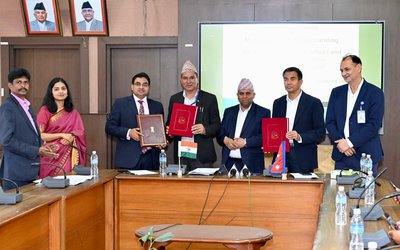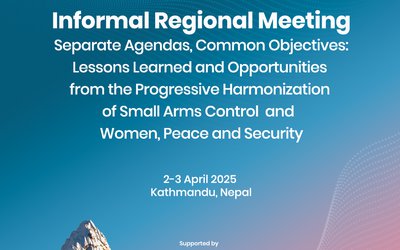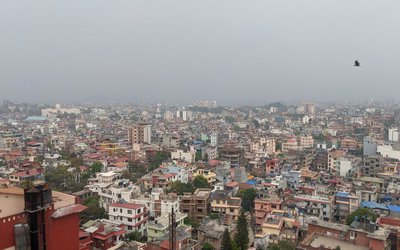
"The great thing about inflation is that if you spend on groceries, the bags are lighter and easier to carry home."
As announced by Nepal Rastra Bank, the annual average consumer inflation in the financial year 2079/80 is 7.74 percent. In the previous fiscal year, such inflation was 6.32 percent. Compared to the previous financial year, in the financial year 2079/80, under the food and beverage group, the price increase of restaurant and hotel sub-group was 14.42 percent, food and food products 10.7 percent, tobacco products 9.88 percent and Dairy products and eggs are 9.23 percent.
Similarly, under the non-food and services group, the price increase of transportation sub-group is 13.5 percent, entertainment and culture 10.18 percent, health 10.01 percent, education 8.79 percent and household goods 8.65 percent.
Also, with India banning the export of rice, the price of coarse rice has increased. Earlier, coarse rice costing Rs 1600 per bag now costs up to Rs 1850 in the wholesale market. Consumers have to pay Rs 1,900 per bag for coarse rice in the retail market. Similarly, milled rice has increased by Rs 200 per bag of 25 kg. Earlier, wholesale rice costing 1900/ two thousand per bag is now not available for less than 2200 rupees. Beaten rice is also expensive. The price of chilli powder has also gone up. Traders have raised the price of sugar to Rs 110 per kg. Traders have also started increasing the price of cooking oil.
The price of cumin has been increasing continuously for the last five/six months. The price of cumin which is available at 5/600 rupees per kg has now reached 1300 rupees in the wholesale market. Within a month, one and a half hundred rupees have become expensive.
Price Increase Inflation is a measure of how expensive a unit of goods and services has become over a period of time, usually a year. It is one of the most familiar terms in economics.
Due to the lack of investable capital with banks and financial institutions and the reduction in sales, the common people expect the price of real estate and housing to increase. Experts say that when the country is dependent on imported goods, inflation is also imported, which directly affects the daily life of the people.
And, the issues experts worry about the most are unemployment and inflation—which none of the political parties seem to take seriously. It is clear that the people have to suffer when the government shows its presence and does not care about the suffering of the people. None of the political parties are serious about addressing the growing unemployment and rising inflation in the country, nor have they made any commitment to address the suffering of the people.
This is very unfortunate for the people and the country. In 2023, increasing remittance flows and increasing number of tourists are likely to make Nepal vulnerable to global inflation caused by higher fuel prices and interest rate hikes by the United States Federal Reserve. Tourism contributes 15 percent to Nepal's gross domestic product. As long as the government can maintain sound macroeconomic, fiscal and monetary policies, that kind of economic stability is possible.
Since India and China are Nepal's biggest trading partners, there are those who believe that India's economic status is good, which is good for Nepal.
Nepal is also fortunate because it has a large number of foreign workers who provide remittances. Nepal has about 600,000 workers in Qatar and about 400,000 in the United Arab Emirates, and those economies are linked to oil and they are strong.
2023 is sure to be a challenging year for many economies and consumers as the inflationary effects of high oil prices will be felt in all oil importing countries including Nepal. Oil is priced in US dollars, and the US dollar is appreciating. Oil prices are also rising overall. The IMF stated that there will be price increase and uncertainty in the next few years and monetary policy should try to maintain price stability and economic policy should be aimed at reducing the cost of living.
However, it has been pointed out that these policies should not be too flexible. At present, the cost of the market in Nepal has increased to an unimaginable extent.
From the beginning of the current financial year, it seems that inflation has gone beyond the control of the government. Double price increase in Nepal at once is a matter of concern in itself.
Although inflation is a natural process, unnatural growth is not justified in any sense. The events of other countries have also shown the fact that if the inflation continues to rise, it can lead to a situation of rebellion in the society.
Due to the unnatural increase in prices, the common citizens get into a state of rebellion when they see difficulties in their daily living.
In order to prevent this kind of uncomfortable situation from happening, the market should be kept healthy and balanced and it should be prevented from rapid price increase.
It is not an exaggeration to say that the prices have increased in Nepal, which is an imported economy, due to the problems of the supply system created worldwide due to the war between Russia and Ukraine and the decrease in production in Nepal itself.
- “Kolahalko Kolaj “: A Collection Of Scattered Memories By Prakash Sayami
- Apr 02, 2025
- Nepal-India Trade, Transit And Unauthorized Trade: Some Considerations
- Jan 16, 2025
- PM Oli’s Forthcoming Visit To China: Will The Achievement Be Complete?
- Nov 29, 2024
- Obituary To Dr. Mohan Man Sainju!
- Nov 02, 2024
- Donations To Political Parties: Some Reflections
- Oct 24, 2024















